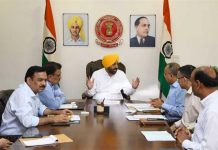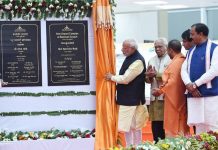 If only politicians had the patience for details. There has been much hand-wringing among them since the Supreme Court ruled in July that an MP or an MLA/MLC would be unseated immediately upon conviction in a criminal case. Infamous attempts have been made by the men in white to write a new law and even bring an ordinance to restore status quo ante that allowed an elected representative to continue in office until an appeal against his conviction was disposed off.
If only politicians had the patience for details. There has been much hand-wringing among them since the Supreme Court ruled in July that an MP or an MLA/MLC would be unseated immediately upon conviction in a criminal case. Infamous attempts have been made by the men in white to write a new law and even bring an ordinance to restore status quo ante that allowed an elected representative to continue in office until an appeal against his conviction was disposed off.
The parliamentarians can, however, spare themselves the embarrassment of such clumsy acts if only they take the pains to read a 30 September ruling by a trial judge in faraway Jharkhand, who has found former Bihar chief minister Lalu Prasad Yadav guilty of patronising an intricate scheme of corruption that ran unchecked for years. As television news flashed those findings without bothering to dive into the 568-page judgment, millions of citizens wearied from decades of corruption felt vindicated by Lalu’s comeuppance.
Lalu’s conviction in one of the 54 cases of the ‘fodder scam’, the popular name given to widespread embezzlement of government funds in the early-to-mid-1990s in the purchase of medicines and fodder for the livestock of the poor, is no small irony for him. His rule of Bihar for 15 years is remembered less for the immense and irreversible empowerment his socialist politics brought to the backward castes and more for the utter lawlessness and crime it spawned, allowed and even patronised. That assessment only grew starker in comparison with the reign of his arch-rival, Chief Minister Nitish Kumar, who has ruled the state since 2005 and is credited with having vastly improved the state’s law and order.
Be that as it may, the imperatives of justice are clear beyond doubt, as the ‘Blackstone Ratio’, quoted above, enumerates. It is not this correspondent’s claim that Lalu bears no culpability in the massive fodder scam, for that can be revealed only by a thorough investigation of thousands of documents and the questioning of hundreds, which India’s premier sleuthing agency, the Central Bureau of Investigation (CBI), failed to carry out.
Read More >
The Promise And Betrayal Of Lalu Prasad Yadav
A victim of his many indulgences, the champion of the subaltern probably considered good governance too much of a grind
 “Isn’t he quite a rascal like Jack Sparrow?” wonders a young wannabe-socialite who calls Dhanno aka Anushka, Lalu Prasad Yadav’s sixth daughter and a designer, a groupie. “So cute, funny, good-hearted and yet so yucky!” That does not sound like me, Lalu would have protested. “I have been twice chief minister and once Union minister,” he reminded the special CBI court in Ranchi.
“Isn’t he quite a rascal like Jack Sparrow?” wonders a young wannabe-socialite who calls Dhanno aka Anushka, Lalu Prasad Yadav’s sixth daughter and a designer, a groupie. “So cute, funny, good-hearted and yet so yucky!” That does not sound like me, Lalu would have protested. “I have been twice chief minister and once Union minister,” he reminded the special CBI court in Ranchi.
From his elder brother’s peons’ quarters at the Bihar Veterinary College to an upper divisional cell in Birsa Munda Central Jail at Hotwar in Ranchi, it has been quite a journey indeed, considering Lalu, as railway minister, always travelled in salons. “I work so much,” he reasoned to a hack, “If I don’t get all the comforts, I will go mad.”
Sparrow had pedigree and a legendary pirate for a father; Lalu, on the other hand, was born to just another poor Yadav; his father’s name never really mattered. But, within half a lifetime, he made ‘Yadav’ the biggest identity of strength and pride in Bihar. For a cavalier buffoon, he almost singlehandedly changed, in a matter of five years, the political demography of his state. For good.
Read More>
Lalu Jailed: RIP Or Comeback Kid?
Yadav’s only hope lies in successfully projecting his conviction and jailing in the fodder scam as an injustice to him and his caste brethren
 It was over 17 years ago when Lalu Prasad Yadav was first named in the “fodder scam”, the popular name for an embezzlement of Rs 950 crore (Rs 2,000 crore at today’s value) of government funds meant to buy food and medicines for livestock. As the fraud took place in the 1990s when Yadav was Bihar’s chief minister, he was accused of protecting the scammers who gave forged receipts for fodder and medicines never bought. In these long years, while the trial in the criminal case for the embezzlement moved at a snail’s space, Yadav rode to the top of his political career and crashed to its bottom too.
It was over 17 years ago when Lalu Prasad Yadav was first named in the “fodder scam”, the popular name for an embezzlement of Rs 950 crore (Rs 2,000 crore at today’s value) of government funds meant to buy food and medicines for livestock. As the fraud took place in the 1990s when Yadav was Bihar’s chief minister, he was accused of protecting the scammers who gave forged receipts for fodder and medicines never bought. In these long years, while the trial in the criminal case for the embezzlement moved at a snail’s space, Yadav rode to the top of his political career and crashed to its bottom too.
After formal charges in the case forced him to resign as CM in July 1997, Yadav shockingly replaced himself with his homemaker wife, Rabri Devi, the mother of his nine children. He thus continued to rule as the de facto power. Despite the wide outrage at this subversion of democratic principles, his Rashtriya Janata Dal (RJD) thumped to a win in the 2000 assembly elections. Four years later, he won a whopping 24 Lok Sabha seats, becoming a kingmaker that saw the Congress, once his archenemy, seize New Delhi. Yadav would go on to be India’s most famous railway minister, turning the railways around and lecturing business school students on how to make the public sector profitable.
Read More >
ALSO READ
[egpost postid=”195416″ byline=”false” style=margin-top:0px;]
[egpost postid=”195625″ byline=”false”]
[egpost postid=”195592″ byline=”false”]
[egpost postid=”195414″ byline=”false”]
Lalu convicted in fodder scam, faces disqualification as MP
Ranchi, Sept 30 (PTI): In a body blow to RJD before next year’s Lok Sabha polls, its President Lalu Prasad was today convicted by a special CBI court here in the fodder scam corruption case that disqualifies him from Parliament and renders him ineligible for contesting elections for at least six years.
Another 44 accused, including former Bihar Chief Minister Jagannath Mishra, six politicians and four IAS officers, were also convicted by court of Pravas Kumar Singh for fraudulent withdrawal of Rs 37.7 crore from Chaibasa treasury.
The court fixed October 3 for pronouncement of sentence against Yadav, Mishra and others.
The RJD chief faces immediate disqualification as Lok Sabha member under a recent Supreme Court order that an MP or MLA would stand disqualified immediately if convicted by a court for crimes with punishment of two years or more and under some other laws even without jail sentence.
The August judgement of the Supreme Court struck down a provision in the electoral law that provided protection to sitting MPs and MLAs by allowing them to continue in their posts if they appeal against a lower court conviction and secure a stay of the order.
PODCAST
Lalu would have got protection from disqualification if the ordinance promulgated by the Centre was cleared by President Pranab Mukherjee but he is said to have some reservations and raised questions over it.
Meanwhile, Rahul Gandhi has compounded problems by attacking the ordinance and calling for its withdrawal, virtually sealing its fate.
RJD Spokesperson Manoj Jha said they would challenge the order in a higher court after the sentence is known.
Earlier, Prasad arrived at the special CBI court here before delivery of the verdict in the 17-year-old case.
The court had on September 17 set today’s date to pass orders in the case.
Among others, IAS officers Mahesh Prasad, Phoolchand Singh, Beck Juleus, K Arumugam, Income Tax officer A C Choudhary, former AHD officials and fodder suppliers were also among the accused.
Prasad had begun arguments on September 9 and ended it on September 17 after the Supreme Court turned down his request to change the current special court to another court after he apprehended political conspiracy.
Following the Animal Husbandry scam, popularly known as the Fodder Scam, Prasad had to resign as chief minister of Bihar.
After installing his wife Rabri Devi as the chief minister, Yadav had surrendered to a court in Patna on July 31, 1997.
Later, he came to Ranchi following a court order that Ranchi had the jurisdiction of the case. The Mecon Guest House was converted to a camp jail in Ranchi before he was shifted to the old Birsa Munda Jail at Circular road here.
After Jharkhand’s bifurcation on November 15, 2000, the litigations were brought before the Supreme Court whether the Patna High Court had the jurisdiction on the cases in this part of the undivided Bihar and trial was stayed till December 2000 to December 2001.
The SC had said in November, 2001 that trial would be conducted by special courts in Ranchi.
Trial in Ranchi began in March, 2002 by seven special courts. The case was posted for defence of Prasad from May 15 and Prasad’s counsel examined 29 witnesses in his defence.
But when the defence continued to skip dates, the court fixed July 15 to deliver the judgement and asked the accused to complete arguments by July 1.
Subsequently, Prasad moved the Supreme Court pleading shifting of his case from the court of Pravas Kumar Singh on the ground of political conspiracy, which the apex court struck down, paving the way for the first judgement against Prasad.













